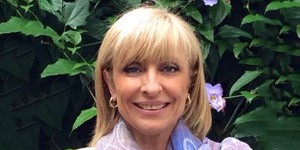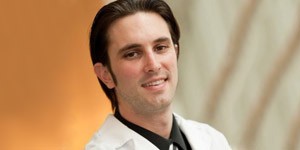By Guillermo Moreno-Sanz

Dr. Moreno-Sanz has authored more than 30 scientific articles and 3 patents describing the role of the endocannabinoid system in pain perception. Graduated in Biochemistry and Organic Chemistry from the University of Zaragoza, he obtained his PhD in Neuroscience from the Complutense University of Madrid, in Spain. He gained extensive international experience with long-term fellowships in the Netherlands, Italy, and the United States, developing most of his academic career at the University of California, Irvine, where he discovered a new class of cannabinoid analgesic with high clinical potential. In 2017, he acted as a consultant to the National Academies of Sciences of the United States in the preparation of the report "The health effects of cannabis and cannabinoids" and later founded Abagune Research to offer scientific advice and R&D solutions to the international cannabis industry. In 2020 he assumes the scientific and medical direction of Khiron Life Sciences in Europe.
Meet the Experts is a series of interviews conducted by experts from the field of Cannabis to world leaders in research and clinical practice of Cannabis as medicine.

Bonni Goldstein, MD is the owner and Medical Director of Canna-Centers Wellness and Education, a California-based medical practice devoted to educating patients about the use of cannabis for serious and chronic medical conditions. After 14 years working in the specialty of Pediatric Emergency medicine, she developed an interest in the science of medical cannabis after witnessing its beneficial effects in an ill friend. She has evaluated thousands of patients for use of medical cannabis, including hundreds of children with intractable epilepsy, autism, and advanced cancers.
Dr. Goldstein recently authored the book "Cannabis Revealed: How the world's most misunderstood plant is treating everything from chronic pain to epilepsy," which was a 2017 American Botanical Council Book of the Year semifinalist. Dr. Goldstein is also the medical advisor to Weedmaps.com and is on the Board of the International Association for Cannabinoid Medicines.
Dr. Goldstein is a frequent speaker and has presented her clinical results at numerous medical conferences most recently at the Clinical Trials in Cannabis Conference in London, UK and the Medical Marijuana and Autism Consensus Symposium at the Childrens' Hospital of Philadelphia. She has appeared numerous times on the TV show "The Doctors" and currently is featured in the Netflix documentary "Weed the People".
Guillermo Moreno-Sanz: How did you start using cannabis in your practice? Did you know about the endocannabinoid system before that?
Bonni Goldstein: I was a pediatric emergency medicine physician for approximately 14 years. In 2006 I was somewhat burned out by the long hours and overnight shifts, and trying to be both a mom and doctor was increasingly difficult. I took a leave of absence from the ER work and during that time off, a friend who was struggling with a serious illness asked me about "medical marijuana." I did not know anything so I did some research and was shocked to learn about the endocannabinoid system (which I had never heard of before). After witnessing my friend have good results with cannabis, I decided to work in a medical cannabis practice part-time. This practice was quite professional and specifically geared towards helping patients understand and use medical cannabis successfully. After a few months, I knew I had found the "second chapter" of my medical career.
GMS: Tell us about canna-centers.
BG: Canna-Centers Wellness & Education is similar to most physicians' offices except that we focus on helping patients to use cannabinoids for their chronic and serious medical conditions. Many physicians in California were (and unfortunately still are) reluctant to approve patients to use cannabis so there was a need for a practice where patients could partner with a physician experienced with these compounds, helping them to figure out the best cannabis regimen for their conditions.
GMS: What where the biggest challenges you had to face to start this activity?
BG: To be honest, there have not been many challenges. The Medical Board of California has published standard of care guidelines for physicians who approve patients for cannabis use and as long as one follows the standard of care, there are no issues.
GMS: California was the first state in the US to legalize the medical use of cannabis in 1996. However it took many years before any real legislation was implemented, almost at the time the adult use was legalize. Has this new regulation changed anything for you?
BG: Unfortunately California had a mandate to regulate medical cannabis at the same time that adult-use was voted into law. This resulted in the government combining the regulations. This has been a disaster for medical patients in that taxes are now ridiculously high and products that patients had access to for years prior to legalization are no longer available. Imagine that the medicine that helped your child is now no longer available because of new laws!!! This new world of regulation has not been great for the medical patients in terms of cost and access, in fact many are saying it is more prohibitive.
GMS: How do you foresee a scenario for doctors and patients in which cannabis becomes federally-legal? Can cannabis therapy be implemented in a regular medical practice or needs a kind of personal tailoring that main providers cannot offer?
BG: If cannabis becomes federally available, my concern is that more taxes will be added. This is not acceptable for patients as their out-of-pocket costs have gone up significantly with the new regulations. However if cannabis was de-scheduled and we could finally do real research and clinical trials, certainly patients will benefit. Cannabis treatment can be implemented in a regular medical practice but it seems that physicians need some type of clinical training in order to be proficient in their advice for patients. The number of products and cannabinoids available for patients to use in CA is growing quickly and physicians need to have education on these products, dosing, etc, in order to help patients.
GMS: You are a member of the Society of Cannabis Clinicians. Can you tell us about what this society is and what kind of activities it organizes?
BG: The SCC is a wonderful group of physicians who all have medical cannabis specialty practices or an interest in this field. There are quarterly meetings with distinguished speakers. We also educate and advocate for medical cannabis. For instance, recently an approved patient in Arizona was arrested for having cannabis in a concentrated form. His attorney requested a letter from the SCC describing why concentrated cannabis is useful and indicated for medicinal benefits so we submitted a letter and the charges were dropped.
GMS: Cannabis clinicians operate under state law. Do you face some legal responsibilities for your practices under federal legislation?
BG: In terms of federal risk, there is a legal case called Conant vs Walters from 2002 (https://www.safeaccessnow.org/landmark_federal_conant_v_walters) that outlined federal protection for physicians who discuss medical cannabis with patients. No physician has ever been prosecuted federally for recommending cannabis to a patient.
GMS: How are cannabis clinicians perceived by other clinicians? Did Dr. Gupta's report on cannabis and CBD change any of that?
BG: I think cannabis clinicians were thought to be "quacks" until recently. I now am inundated with emails from interested physicians who want to shadow me in my office to learn about medical cannabis as they can no longer ignore having conversations about cannabis with their patients. Dr. Gupta's CNN report in 2013 certainly did not change physicians minds in my opinion but I think what he did was give cannabis the mainstream stamp of approval for patients. Unfortunately physicians still seem to feel quite negatively about cannabis. But it appears the tide is turning just in the past one to two years in that the medical community is starting to see this as valid medicine.
GMS: What does your clinical population look like? At IACM you presented several cases of children you are helping with cannabis. What are the main challenges and satisfactions you face in your practice?
BG: My clinical practice includes both adults and children, although I am only taking children as new patients since I trained as a pediatrician. The average age of adult patients is about 60 years old and the most common condition in adults is chronic pain. In terms of children, the most common conditions are refractory epilepsy and autism. This work is difficult but very rewarding. For instance yesterday I heard back from the mother of a boy facing a terrible cancer and she called to report that he was able to wean off opioids completely with the use of cannabis. She was thrilled and so was I! The biggest challenge is that I am only one person and cannot take on and manage so many medically complex patients who are seeking help with cannabis medicine. Thankfully, I just hired another pediatric specialist to help in the office part-time.
GMS: You recently published a book called "cannabis revealed". Congratulations! Can you tell us about your goals and the process of writing and publishing it?
BG: I wrote Cannabis Revealed after a patient asked me where he could find credible scientific information about the therapeutic effects of cannabis. I realized that the internet was full of misinformation and claims by uninformed people, many of whom were trying to sell products. My experience and knowledge as a physician in this field would be helpful for those who were looking for good information so I began writing. I found that many of my patients were eager to share their stories in the book as they were excited about their positive experience with cannabis medicine.
GMS: What type of products do you use more? How do you come up with a treatment regime?
BG: California dispensaries carry the following cannabinoid compounds: CBD, THC, THCA, CBDA, CBG, THCV, delta-8-THC, and CBN. In general the patient's history, experience with cannabis, and goals of treatment determine the treatment regimen. There is no "one size fits all" with cannabinoids so often the patient must use trial and error to find what works best. It is not unusual for patients to try five or more products before finding something that gives them the desired effects. Many of my patients include doses of THC that are not intoxicating, often called "microdosing." Also the idea that intoxication or psychoactivity is unwanted is inaccurate, as many adult patients find this side effect pleasant, especially in the evening after a long day of work. Others don't like this side effect and they try to use the other cannabinoids to achieve the desired results. Most of the information I use in my clinical decision-making comes from a combination of scientific research and clinical response by my patients.
GMS: Orphan-drug approval of Epidiolex by FDA was somewhat expedited by the pressure of families with kids affected by intractable epilepsy. What is your opinion on this process and on epidiolex as a medicine?
BG: One must remember that approximately 30% of people with epilepsy do not respond to anti-seizure medications. We must empathize with these patients who live with the uncertainty of the next seizure and the possibility of death due to a seizure. It is a terrible situation for these people and even more difficult in children as continued seizures and the harsh medications can interfere with normal developmental processes. Any and all treatments must be available for these patients and this includes Epidiolex. Having a product available by prescription that is covered by insurance is very helpful for those who cannot afford the out-of-pocket expense of artisanal CBD oil. That being said, it appears that whole plant CBD oil might be more effective than Epidiolex for some. But again, I feel quite strongly that all options need to be available for these patients.
GMS: The cannabis industry has exploded in the US and product companies are making huge revenues on the adult market. What is your relationship with the industry?
BG: As a physician who is licensed in California and who approves patients for the use of medical cannabis, I am prohibited from being involved in any way with any company that is licensed to dispense cannabis. It is unfortunate that this is the case as a physician with clinical knowledge should be involved in developing products that will help patients. It is a bit of a double standard as I am not prohibited from working with pharmaceutical companies.


